A thriving garden is a delight to the senses, offering vibrant colors, fragrant blooms, and fresh produce. However, nothing disrupts this serenity more than weeds. These uninvited intruders compete with your plants for sunlight, nutrients, and water, often taking over beds and pathways if left unchecked. While chemical herbicides are widely available, many gardeners are turning to natural methods to control weeds without harming the environment, beneficial insects, or the health of their family. In this article, we explore the best natural ways to keep weeds out of your garden, ensuring a flourishing, chemical-free outdoor space.
1. Mulching: The Gardener’s First Line of Defense
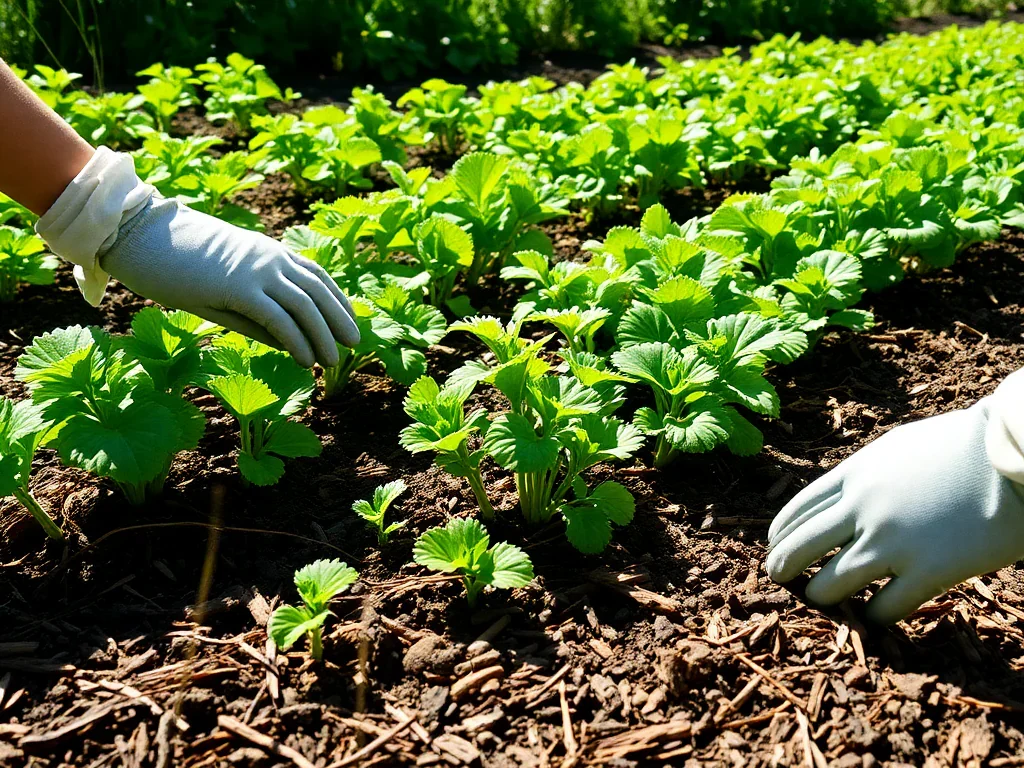
Mulching is a simple yet highly effective way to suppress weeds naturally. By covering the soil around your plants with a protective layer, mulch blocks sunlight from reaching weed seeds, preventing them from germinating.
Types of Natural Mulch:
- Wood chips or bark: Ideal for flower beds and shrubs, they decompose slowly, adding organic matter to the soil.
- Straw or hay: Works well for vegetable gardens; avoid seeds that might introduce more weeds.
- Leaves: Fallen leaves shredded or left whole act as an excellent winter mulch, enriching the soil as they decompose.
- Grass clippings: Fresh clippings from your lawn can serve as a nitrogen-rich mulch if applied in thin layers to avoid matting.
Tips for Effective Mulching:
- Apply a 2–4 inch layer around your plants.
- Keep mulch a few inches away from plant stems to prevent rot.
- Replenish organic mulch as it decomposes over time.
Mulching not only suppresses weeds but also retains soil moisture and moderates temperature, creating an ideal environment for your garden plants.
2. Landscape Fabric and Natural Barriers
For gardeners looking for a longer-term solution, landscape fabrics provide a physical barrier that prevents weeds from breaking through the soil. These fabrics allow water and nutrients to pass through while blocking weed growth.
Eco-friendly Tips:
- Choose biodegradable fabrics made from jute, coir, or other natural fibers.
- Combine fabric with a layer of organic mulch to enhance effectiveness.
- Cut slits only where your plants are, leaving the rest of the soil covered.
For pathways or areas prone to heavy weed growth, natural barriers such as thick cardboard or newspaper layers can also act as effective weed suppressants. Over time, these materials break down and enrich the soil.
3. Hand Weeding: Old-Fashioned but Highly Effective

There’s no substitute for a gardener’s hands when it comes to precision weeding. While it may seem labor-intensive, hand weeding allows you to target weeds before they establish deep roots.
Hand Weeding Tips:
- Pull weeds after rainfall when the soil is soft.
- Use a garden trowel or hand fork for deep-rooted weeds.
- Remove the entire root system to prevent regrowth.
- Make it a weekly habit—regular attention prevents weed infestations.
While hand weeding takes time, it is chemical-free and ensures your garden remains completely natural.
4. Vinegar: A Powerful Natural Herbicide
Household vinegar, specifically horticultural vinegar, can serve as an effective natural weed killer. Its acetic acid content burns the leaves of young weeds, preventing growth.
Using Vinegar Safely:
- Apply on a sunny, dry day to maximize effectiveness.
- Target only the weeds you want to eliminate, as vinegar is non-selective and can harm other plants.
- Use a spray bottle for precise application.
While vinegar works best on young, tender weeds, repeated applications may be necessary for tougher, established weeds. It’s an excellent natural alternative to synthetic herbicides.
5. Boiling Water: Simple and Chemical-Free
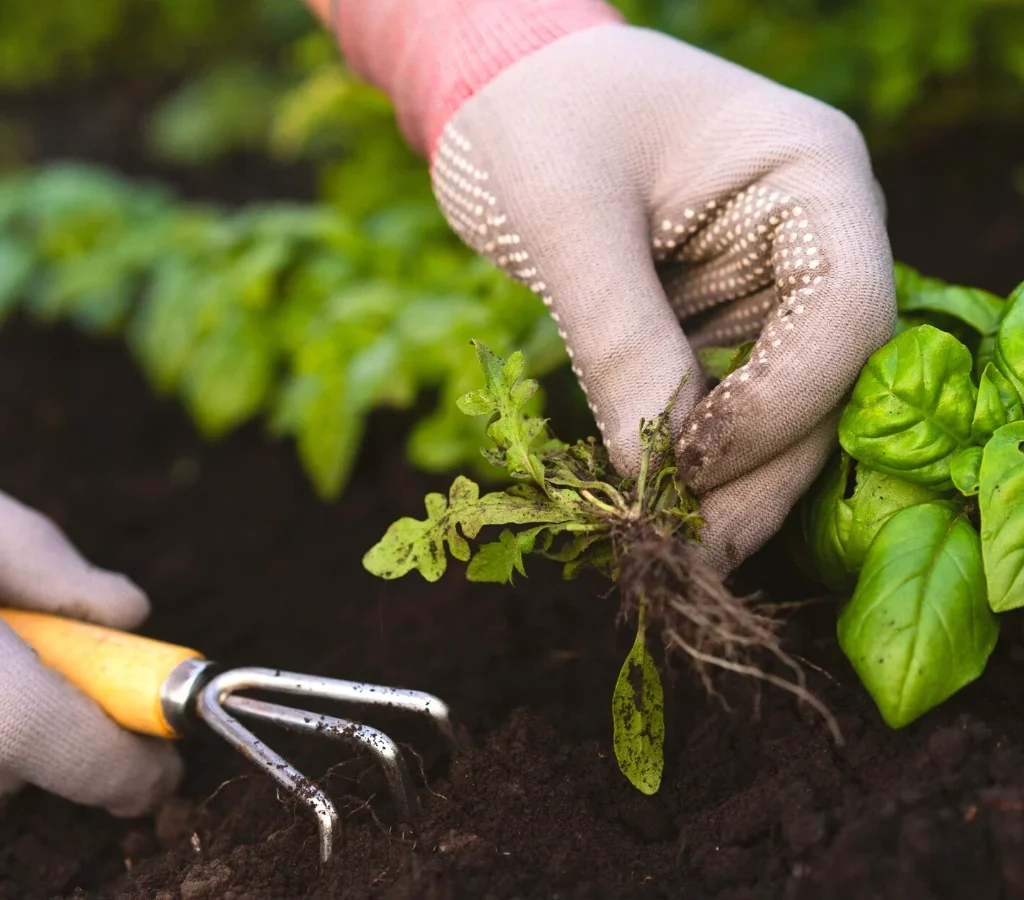
Boiling water is one of the simplest and most immediate ways to kill weeds. It works by scalding the plants, causing cellular damage that stops growth.
Tips for Using Boiling Water:
- Pour carefully at the base of weeds to avoid harming nearby plants.
- Effective on cracks in garden paths, driveways, or other areas where you don’t want vegetation.
- Repeat as necessary for perennial weeds that may regrow from roots.
Boiling water is cost-effective and completely natural, making it a go-to solution for spot-treating weeds.
6. Corn Gluten Meal: Prevent Weed Seeds from Sprouting
Corn gluten meal, a byproduct of corn processing, is an organic pre-emergent herbicide. It prevents weed seeds from germinating while adding nitrogen to your soil, benefiting your garden plants.
Using Corn Gluten Meal:
- Apply in early spring or fall before weed seeds start to sprout.
- Spread evenly across your garden soil, then water it lightly.
- Reapply annually for best results.
Corn gluten meal is especially effective against annual weeds, making it a proactive measure for long-term weed control.
7. Plant Ground Covers: Outcompete the Weeds
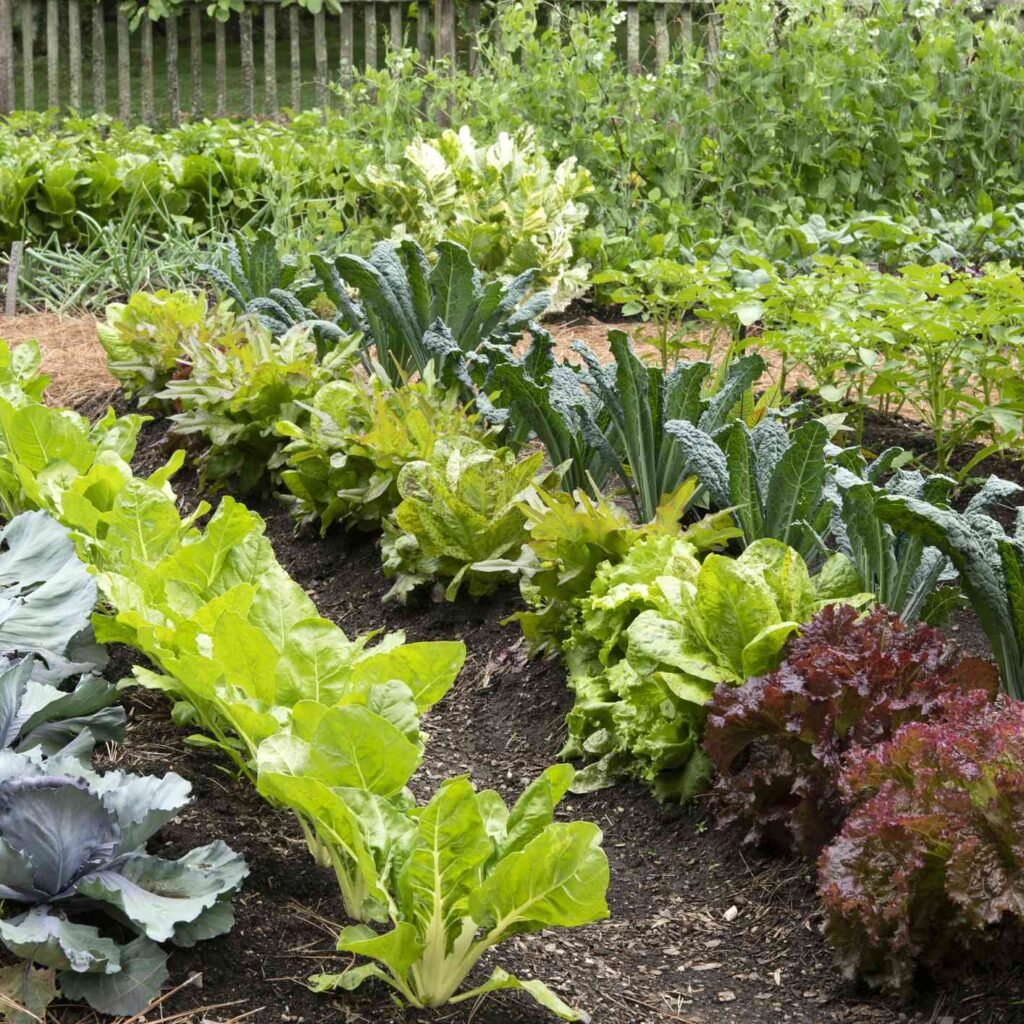
One of the most natural ways to prevent weeds is to plant your garden densely. Ground cover plants like clover, creeping thyme, or low-growing sedum can shade the soil, leaving little room for weeds to establish.
Benefits of Ground Covers:
- Reduce erosion and help retain soil moisture.
- Provide habitat for beneficial insects.
- Create a visually appealing, lush garden space.
By selecting the right ground cover for your climate and garden conditions, you can naturally crowd out weeds while enhancing your garden’s beauty.
8. Regular Garden Maintenance
Consistency is key when it comes to weed control. A well-maintained garden is less likely to succumb to weeds, as healthy plants outcompete intruders for nutrients and space.
Maintenance Practices:
- Water only around the base of plants to prevent weed seeds from germinating.
- Prune and trim plants regularly to reduce shaded areas where weeds thrive.
- Rotate crops in vegetable gardens to prevent soil depletion and weed growth.
By staying attentive and proactive, you can prevent weeds from becoming a major problem, keeping your garden vibrant and healthy.
9. Companion Planting: Nature’s Weed Suppression
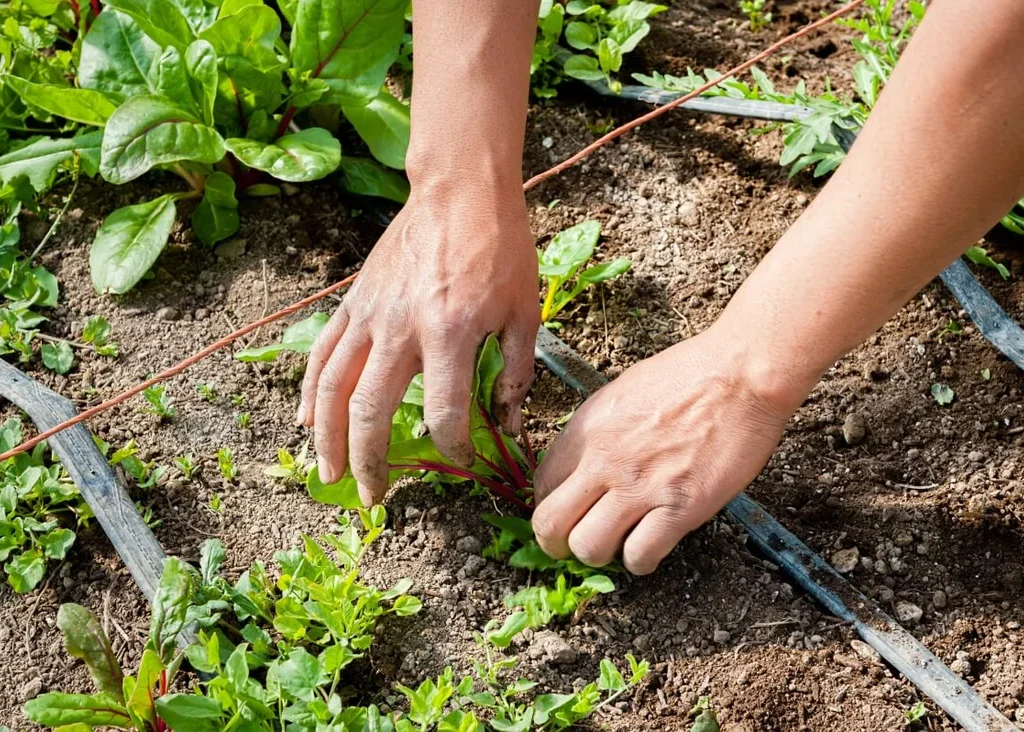
Certain plants naturally inhibit weed growth through their root systems or by shading the soil. For example, aromatic herbs like rosemary, sage, and thyme can deter weeds, while dense vegetables like zucchini and squash shade the ground, preventing weed germination.
Tips for Companion Planting:
- Interplant vegetables with herbs to maximize space and suppress weeds.
- Use tall or vining plants to shade bare soil.
- Combine with mulching for an extra layer of protection.
Companion planting not only helps manage weeds but also promotes biodiversity and attracts beneficial insects to your garden.
10. Embrace Patience and Persistence
Natural weed control requires patience. Unlike chemical solutions, these methods work gradually, creating a balanced ecosystem in your garden. Over time, with consistent effort and a combination of strategies, weeds become manageable, allowing your plants to thrive in a healthy, chemical-free environment.
Conclusion
Weeds may be a persistent challenge, but they are far from unbeatable. By embracing natural methods such as mulching, hand weeding, ground covers, vinegar applications, boiling water, and companion planting, you can maintain a beautiful, thriving garden without relying on harsh chemicals. Combining these techniques with consistent garden maintenance ensures a lush, vibrant outdoor space that supports both your plants and the environment.
By turning weed control into a regular, mindful practice, you not only protect your garden but also create a harmonious ecosystem where plants can flourish naturally—proving that sometimes, the best defense truly is a natural one.
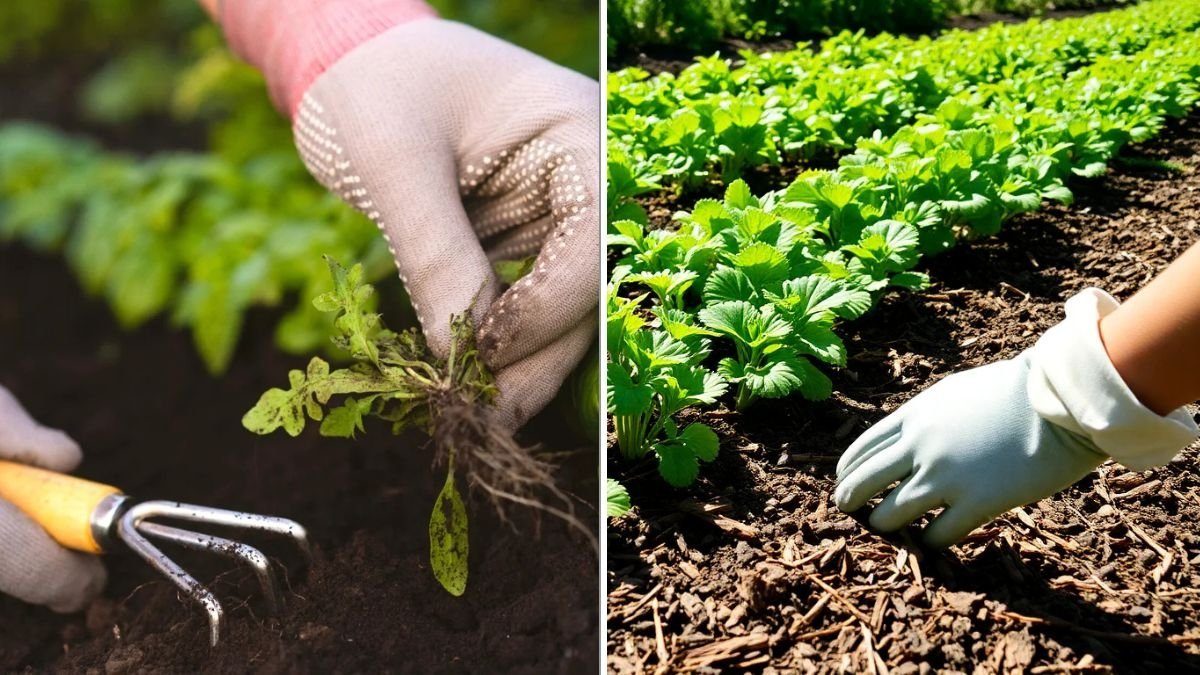





Leave A Comment